- عنوان کتاب: Thinking with AI – Machine Learning the Humanities
- نویسنده: Hannes Bajohr
- حوزه: یادگیری ماشین
- سال انتشار: 2025
- تعداد صفحه: 272
- زبان اصلی: انگلیسی
- نوع فایل: pdf
- حجم فایل: 5.59 مگابایت
پس از سالها رکود مجازی، دهه گذشته پیشرفت سریعی در تحقیقات یادگیری ماشین داشته است. در واقع، آنقدر سریع است که تفاسیر جدیدی از جهان در کنار پردازش دادهها و از طریق همان پردازش دادهها که اساس موفقیت اقتصادی فناوری را تشکیل میدهد، توسعه یافته است. در این شرایط، تقابل بین آنچه به طور گسترده و تا حدودی نادرست «هوش مصنوعی» (AI) نامیده میشود و رشتههای انسانگرایانه بهعنوان زمینهای مناسب برای کاوش مفهومی و تحقیق انتقادی پدیدار میشود.1 در این تلاقی است که حوزه رو به رشد Critical AI Studies نقش محوری را بر عهده میگیرد. 2023; گودلاد 2023; در تأثیرگذارترین نوع خود، به این واقعیت پاسخ میدهد که هوش مصنوعی به شکل یادگیری ماشینی تصادفی به عنصر اصلی جریان جهانی سرمایه و گرایشهای استخراجی آن و همچنین فناوری مرکزی نظارت و طرد نژادی و اقتصادی تبدیل شده است، به همین دلیل است که مطالعات هوش مصنوعی انتقادی به فناوریهای سیاسی، اقتصادی و اخلاقی مربوط میشود (22o; 2021 چون 2020; هدف آن تشریح شبکه پیچیده روابط بین هوش مصنوعی و محیط اجتماعی-فرهنگی در آن است و تشخیص می دهد که هوش مصنوعی یک ابزار خنثی نیست، بلکه یک سیستم اجتماعی- فنی است که عمیقاً در ارزش ها، سوگیری ها و ساختارهای قدرت جامعه ای که از آن استفاده می کند، تعبیه شده و منعکس کننده آن است. بنابراین، بررسی انتقادی هوش مصنوعی فراتر از کارایی فنی صرف میشود و راههایی را بررسی میکند که این فناوریها در تداوم یا ایجاد هنجارها، ایدئولوژیها و نابرابریهای اجتماعی نقش دارند. بخش به همان اندازه مهم از مطالعات هوش مصنوعی انتقادی به تشریح مفروضات مفهومی و فلسفی مبتنی بر طراحی و استفاده از سیستمهای یادگیری ماشین اختصاص دارد، که هنوز هم اغلب دادههای خود را بهعنوان بازنمایی عینی و خنثی از جهان تلقی نمیکنند (گیتلمن 2013؛ مکنزی 2017؛ آپریچ و همکاران 201). اگر، همانطور که فیلیپ آگر قبلاً سی سال پیش بیان کرده بود، «هوش مصنوعی فلسفه زیر آن است»، کار انتقادی لازم است تا آنچه را که اغلب فقط در مفروضاتی که در طراحی سیستمهای هوش مصنوعی وجود دارد، آشکار کنیم (Agre 1995: 5). اغلب، به نقل از هانس بلومنبرگ، فیلسوف آلمانی، «از بین بردن آنچه ظاهراً «طبیعی» است و محکوم کردن آن به «مصنوعی بودن» آن است (Blumenberg 2020: 188)، زیرا هوش مصنوعی اغلب به اندازه کافی مصنوعی تلقی نمیشود. اگر سیستمهای هوش مصنوعی بر روی دادههایی آموزش ببینند که از نظر تاریخی و فرهنگی خاص هستند، خروجیهای آنها نمیتوانند ادعای عمومیت داشته باشند، چه رسد به جهانی بودن. بنابراین، Critical AI Studies ادعاهای هوش مصنوعی را به عنوان منادی آینده ای عینی، دقیق و کارآمد زیر سوال می برد. این کتاب روایاتی را که هوش مصنوعی را اوج تکاملی عقل انسان معرفی میکنند، بررسی میکند و در عوض آن را به عنوان ادامه تصمیمهای اولیه معرفتی، سیاسی و اقتصادی موجود، البته به شکل پیچیدهتر و مبهمتر، ارائه میکند. در همین بوته است که علوم انسانی، مسلح به آگاهی انتقادی، تاریخی و مفهومی خود، اهمیت خود را بزرگ مییابند. همانطور که محققین رسانه فابیان آفرت و تائو فان بیان کردند، «مدلهای یادگیری ماشینی نسل کنونی نیازمند شیوههای نسل فعلی نقد (انسانگرایانه) هستند» (Offert و Phan 2022). اما این رابطه بین هوش مصنوعی و علوم انسانی به هر دو صورت پیش میرود. اگر هوش مصنوعی در حال حاضر فلسفه ای است که هنوز بیان نشده است، می توانیم ضرب المثل آگر را نیز برگردانیم: به عنوان انسان گرا، اگر مفاهیم خود را در برابر پدیده های جدیدی که علم و مهندسی کامپیوتر به سمت ما می اندازند، آزمایش نکنیم، به عنوان انسان گرا، نادیده گرفته می شویم. زیرا گفتمان کنونی در زمینههای مربوط به هوش مصنوعی ما معمولاً به سیستمهای واقعی موجود و پیادهسازی شده معطوف میشود – بهعنوان اشیاء موقعیت فنی یا تاریخی، بهعنوان مکانهای بحثهای اخلاقی و سیاسی، یا بهعنوان معیارهایی برای آزمایشهای فکری درباره شناخت و آگاهی، خواه ماشینی یا انسانی. این گفتمان در حالتی عمل می کند که می توان آن را تفکر در مورد هوش مصنوعی نامید. این کتاب میخواهد مسیر متفاوتی را طی کند و از این طریق تفکر هوش مصنوعی علوم انسانی را گسترش دهد. به جای شروع با واقعیت مدلهای هوش مصنوعی خاص و بررسی کاربردها، خطرات یا پتانسیلهای آنها، میخواهد بپرسد که هوش مصنوعی کدام مفاهیم، چارچوبها و استعارهها را میتواند در اختیار ما قرار دهد که بتوان از آنها برای بازتاب مولد به خود علوم انسانی استفاده کرد. بنابراین، به جای فکر کردن، این تفکر با هوش مصنوعی است. اعتقادی که این جلد را متحرک می کند این است که تمرین انسان گرایانه باید تکامل یابد تا با سؤالات برانگیخته شده توسط فناوری یادگیری ماشین در زمین خود دست و پنجه نرم کند. این به معنای کنار گذاشتن موضع انتقادی نیست. برعکس، بسیاری از مشارکتهای این کتاب دقیقاً به تفکر اشتباه با هوش مصنوعی میپردازد…
After years of virtual stagnation, the last decade has seen rapid progress in machine learning research. So rapid, in fact, that new interpretations of the world have developed alongside and through the very data processing that forms the basis of the technology’s economic success. In this situation, the confrontation between what is broadly and somewhat inaccurately called ‘Artificial Intelligence’ (AI) and the humanistic disciplines emerges as a fertile ground for both conceptual exploration and critical inquiry.1 It is at this confluence that the burgeoning field of Critical AI Studies assumes a pivotal role (Lindgren 2024; Raley and Rhee 2023; Goodlad 2023; Roberge 2021). In its most influential variety, it responds to the fact that AI in the shape of stochastic machine learning has become a core element of the global flow of capital and its extractive tendencies as well as a central technology of surveillance and racial and economic exclusion, which is why Critical AI Studies is concerned with the political, economic, and ethical ramifications of these technologies (Joque 2022; Crawford 2021; Chun 2021; Amoore 2020; Noble 2018; Eubanks 2017). It aims to dissect the intricate web of relationships between AI and the socio-cultural milieu it inhabits and recognises that AI is not a neutral tool but rather a socio-technical system deeply embedded in and reflective of the values, biases, and power structures of the society that uses it. The critical examination of AI thus moves beyond mere technical efficacy and examines the ways in which these technologies are implicated in perpetuating or creating societal norms, ideologies, and inequalities. An equally important part of Critical AI Studies is devoted to dissecting the conceptual and philosophical assumptions that underlie the design and use of machine learning systems, which still more often than not treat their data as objective and neutral representations of the world (Gitelman 2013; Mackenzie 2017; Apprich et al. 2018). If, as Philip Agre put it already thirty years ago, ‘AI is philosophy underneath’, critical work is needed to make explicit what is most often only implicit in the assumptions that go into the design of AI systems (Agre 1995: 5). Often, this means, to quote German philosopher Hans Blumenberg, ‘to destroy what is supposedly “natural” and convict it of its “artificiality”’ (Blumenberg 2020: 188), for Artificial Intelligence is often not considered artificial enough. If AI systems are trained on data that is historically and culturally specific, their outputs cannot claim generality, let alone universality. Critical AI Studies thus calls into question the claims of AI as a harbinger of an objective, precise, and efficient future. It scrutinises the narratives that portray AI as the evolutionary pinnacle of human intellect and instead presents it as a continuation of existing preliminary epistemic, political, and economic decisions, albeit in a more sophisticated and opaque form. It is in this very crucible that the humanities, armed with their critical, historical, and conceptual awareness, find their relevance magnified. As media scholars Fabian Offert and Thao Phan put it, ‘current-generation machine learning models require current-generation modes of (humanist) critique’ (Offert and Phan 2022). But this relationship between AI and the humanities goes both ways. If AI already is a philosophy not yet articulated, we can also turn Agre’s adage around: as humanists, we would be remiss if we did not also test our own concepts against the new phenomena that computer science and engineering throw at us. For the current discourse in our fields concerned with AI is usually directed at actually existing, implemented systems – as technically or historically situated objects, as sites of ethical and political debates, or as benchmarks for thought experiments about cognition and consciousness, be it machinic or human. This discourse operates in a mode one could call thinking about AI. This book wants to take a different route, thereby expanding humanities AI thinking. Instead of starting with the reality of specific AI models and investigating their uses, dangers, or potentials, it wants to ask which concepts, frameworks, and metaphors AI can provide us that can be used to reflect productively back onto the humanities themselves. Instead of thinking about, then, this is thinking with AI. The belief animating this volume is that humanistic practice must evolve to grapple with the questions incited by machine learning technology on its own turf. This does not mean abandoning the critical stance; on the contrary, many of the contributions to this book deal exactly with thinking with AI done wrong. Nevertheless, criticality must be extended to both sides of the equation to include not only the reality of AI as it exists today, but also to humanistic concepts as objects of inquiry and potential revision in light of the questions raised by Critical AI Studies.
این کتاب را میتوانید از لینک زیر بصورت رایگان دانلود کنید:
Download: Thinking with AI




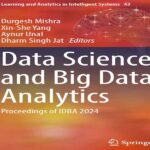
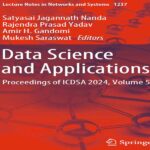

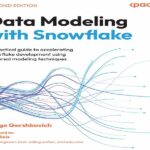
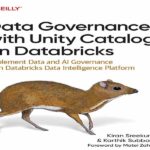

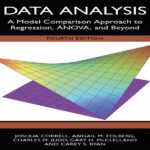


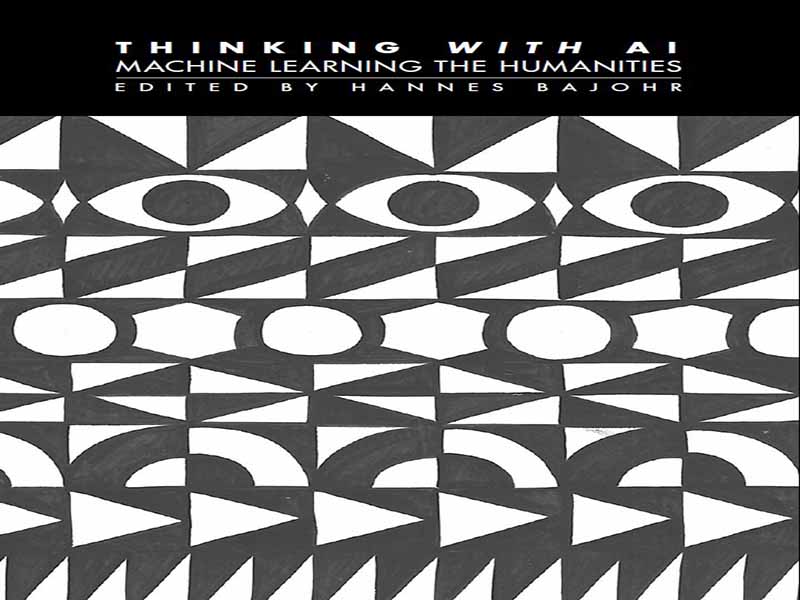























نظرات کاربران